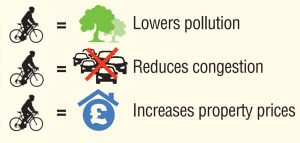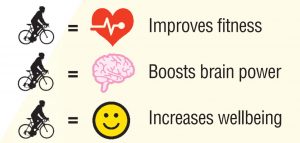Tips for talking about mental health

Talking about mental health is not always easy. But starting a conversation doesn’t have to be awkward, and being there for someone can make a huge difference.
It’s important that conversations happen at times and in places that feel natural. Sometimes it’s easier to talk about our feelings when we are doing something else. Driving in the car; jogging around the park; eating breakfast in the cafe. The more typical the setting, the less unusual and uncomfortable the conversation can feel.
There is no right way to talk about mental health, but these tips will guide you to make sure you’re approaching it in a helpful way.
1. Ask questions and listen
Asking questions can give the person space to express how they’re feeling and what they’re going through, and it will help you to understand their experience better. Try to ask questions that are open and not leading or judgemental – such as “how does that affect you” or “what does it feel like?”
2. Think about the time & place
Sometimes it’s easier to talk side by side rather than face to face. So, if you do talk in person, you might want to chat while you are doing something else. You could start a conversation when you’re walking, cooking or stuck in traffic. However, don’t let the search for the perfect place put you off!
3. Don’t try & fix it
It can be hard to see someone you care about having a difficult time but try to resist the urge to offer quick fixes to what they’re going through. Learning to manage or recover from a mental health problem can be a long journey, and they’ve likely already considered lots of different tools and strategies. Just talking can be really powerful, so unless they’ve asked for advice directly, it might be best just to listen.
4. Treat them the same
When someone has a mental health problem , they’re still the same person as they were before. And that means when a friend or loved one opens up about mental health, they don’t want to be treated any differently. If you want to support them, keep it simple. Do the things you’d normally do.
5. Be patient
No matter how hard you try, some people might not be ready to talk about what they’re going through. That’s ok – the fact that you’ve tried to talk to them about it may make it easier for them to open up another time.
And there are lots of things you can do to support them even if you’re not talking:
- Doing things together
- Sending a text to let them know you’re thinking of them
- Offering to help with day-to-day tasks.
Are you hoping to start a conversation today?Read Lauren’s 5 tips for starting a conversation about mental health Read Lauren’s tips
Time To Change
Mental health help and support services
If you’re experiencing mental health problems or need urgent support, there are lots of places you can go to for help.
Time to Change focuses on challenging stigma and discrimination in society, so they’re not able to provide individual or emergency support for people in crisis. But there are lots of people who can. They are listed here:
Samaritans
Telephone: 116 123 (24 hours a day, free to call)
Email: jo@samaritans.org
Website: www.samaritans.org
Provides confidential, non-judgemental emotional support for people experiencing feelings of distress or despair, including those that could lead to suicide. You can phone, email, write a letter or in most cases talk to someone face to face.
Mind Infoline
Telephone: 0300 123 3393 (9am-6pm Monday to Friday) or text 86463
Email: info@mind.org.uk
Website: www.mind.org.uk/information-support/helplines
Mind provides confidential mental health information services.
With support and understanding, Mind enables people to make informed choices. The Infoline gives information on types of mental health problems, where to get help, drug treatments, alternative therapies and advocacy. Mind works in partnership with around 140 local Minds providing local mental health services.
Rethink Mental Illness Advice Line
Telephone: 0300 5000 927 (9.30am – 4pm Monday to Friday)
Email: online contact form
Website: http://www.rethink.org/about-us/our-mental-health-advice
Provides expert advice and information to people with mental health problems and those who care for them, as well as giving help to health professionals, employers and staff. Rethink also runs Rethink services and groups across England.
Saneline
Telephone: 0300 304 7000 (4:30pm-10:30pm)
Website: www.sane.org.uk/what_we_do/support/helpline
Saneline is a national mental health helpline providing information and support to people with mental health problems and those who support them.
The Mix
Telephone: 0808 808 4994 (11am-11pm, free to call)
Email: Helpline email form
Crisis Support: Text ‘THEMIX’ to 85258.
Website: www.themix.org.uk/get-support
The Mix provides judgement-free information and support to young people aged 13-25 on a range of issues including mental health problems. Young people can access the The Mix’s support via phone, email, webchat, peer to peer and counselling services.
ChildLine
Telephone: 0800 1111
Website: www.childline.org.uk
ChildLine is a private and confidential service for children and young people up to the age of nineteen. You can contact a ChildLine counsellor for free about anything – no problem is too big or too small.
Elefriends
Website: http://elefriends.org.uk/
Elefriends is a supportive online community where you can be yourself. Elefriends is run by Mind.
If you’re a carer needing support you can contact all of the above as well as Carers Directand the Carers Trust, both of whom are able to provide support and advice on any issues affecting you.
Live Well Kent
Telephone: 0800 567 7699
Email: info@livewellkent.org.uk
Website: http://livewellkent.org.uk/
Live Well Kent helps people improve their mental and physical health and wellbeing. It is a free service for anyone over 17. Live Well Kent is delivered on behalf of Kent County Council and the NHS by two charities, Porchlight and Shaw Trust.
Release the Pressure
Telephone: 0800 107 0160
Website: www.kent.gov.uk/social-care-and-health/health/release-the-pressure
Life can get really tough sometimes, but talking can help. We have a highly trained and experienced team waiting to provide you with confidential support to get you back on track.
What should I do if I’m supporting someone in a crisis?
If the person seems really unwell, and you are worried about their safety, you should encourage them to seek help.


 The survey about changes to NHS services in East Kent, including changes to specialist inpatient hospital services, A&E, maternity and more, closes on Saturday.
The survey about changes to NHS services in East Kent, including changes to specialist inpatient hospital services, A&E, maternity and more, closes on Saturday.


